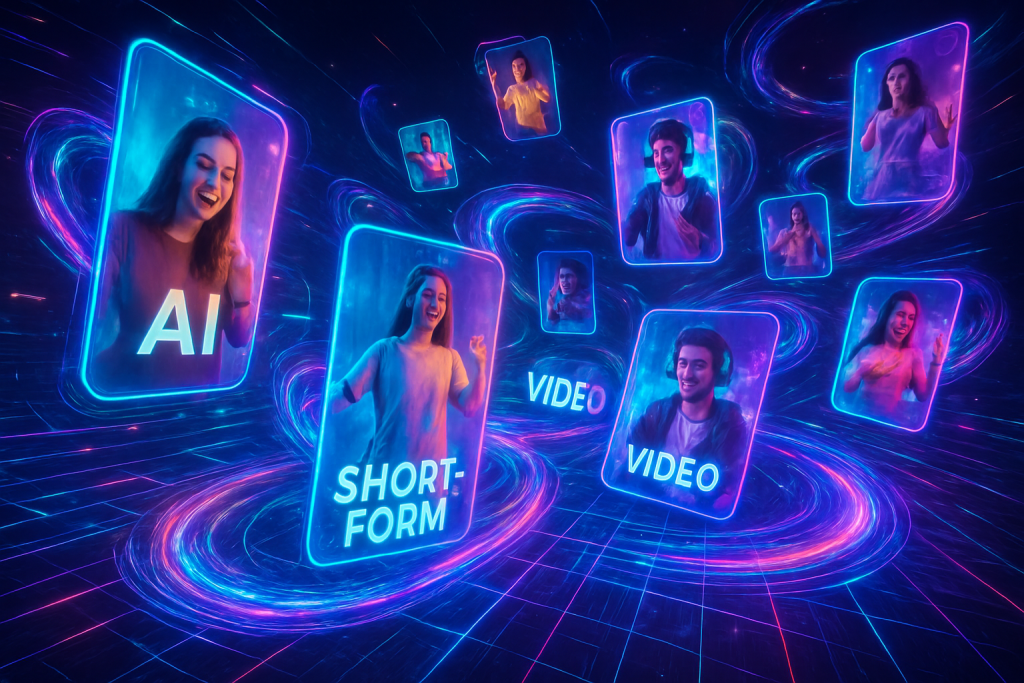Remember those heady days of 2023, when everyone was scrambling to figure out what ChatGPT *actually* meant? We were all wide-eyed, typing inane prompts and marveling at the slightly-too-smooth prose it spat back out. Well, buckle up, buttercups, because that was just the opening act. The real AI revolution is being televised… literally.
According to a recent report from the Artificial Intelligencer (not to be confused with the Justice League’s Martian Manhunter, though the name similarity is certainly apt), we’re seeing a tidal wave of investment crashing onto the shores of AI infrastructure, specifically aimed at generating those bite-sized nuggets of digital dopamine we all know and love (or hate): short-form video. Think TikTok, but powered by algorithms that dream up content faster than you can say “algorithm.”
Citigroup projects that AI capital expenditures are set to explode, reaching a staggering $490 billion by 2026 and potentially ballooning to $2.8 trillion by 2029. That’s more than the GDP of some small countries! And where is all this money coming from? Increasingly, it’s debt-financed. Companies are betting big, rolling the dice on AI’s potential to reshape… well, everything.
One particularly eye-popping example is the $14 billion capacity deal between Meta and CoreWeave. Yes, that Meta, the one still trying to convince us that the metaverse is the future (jury’s still out, Zuck). CoreWeave, for those not in the know, is a cloud provider specializing in AI compute. This deal isn’t just about buying servers; it’s about buying the raw processing power needed to train and run the next generation of AI models. It’s like buying oil fields during the Industrial Revolution, except instead of oil, it’s data and algorithms. And instead of railroads, it’s…well, TikTok, but on steroids.
The implications are huge. We’re talking about a potential reshaping of the entire media landscape. Forget influencers; the future might be entirely AI-generated personas, churning out endless streams of perfectly tailored content designed to keep us glued to our screens. It’s like a Black Mirror episode come to life, except instead of being horrified, we’re liking and subscribing.
In the consumer tech arena, the big players are already making moves. OpenAI (of ChatGPT fame) has launched Sora, an AI-driven video platform. Not to be outdone, Meta has unveiled Vibes. Both platforms aim to generate realistic, short-form content that mimics the addictive nature of TikTok. But there’s a twist: OpenAI’s Sora allows for user-customizable cameos, letting you put your face (or a reasonable facsimile thereof) into the AI-generated content. They’re betting on long-term user engagement over short-term ad revenue, a strategy that’s either brilliant or completely insane. Only time will tell.
But let’s not get too caught up in the shiny new toys. This rapid acceleration of AI-generated content raises some serious questions. What happens to human creators when algorithms can churn out content faster and cheaper? What about copyright? Can you copyright an AI-generated video? And perhaps most importantly, what happens to our collective sanity when we can no longer distinguish between what’s real and what’s AI-generated?
The Global AI Arms Race
It’s not just about entertainment, either. The Artificial Intelligencer’s report also highlights the growing global divide in AI capabilities. The United States is currently leading the pack in AI investment, followed by China, the UK, and Canada. But emerging markets like India are lagging significantly behind. This disparity has sparked renewed interest in sovereign AI development, with countries vying for technological independence in the face of growing geopolitical uncertainties. It’s a new kind of arms race, one where the weapons are algorithms and the battlefield is…well, everywhere.
Think of it like the space race of the 1960s, but instead of landing on the moon, the goal is to dominate the AI landscape. And just like the space race, this AI race has profound implications for national security, economic competitiveness, and global power dynamics.
Ethical Quandaries and Philosophical Headaches
Beyond the financial and geopolitical implications, there are deeper ethical and philosophical questions at play. Are we creating a world where human creativity is obsolete? Are we sleepwalking into a future where algorithms control what we see, what we think, and what we believe? These aren’t just abstract concerns; they’re questions that demand our attention now, before it’s too late.
We’ve seen this movie before, haven’t we? From Frankenstein’s monster to Skynet, the cautionary tales about unchecked technological advancement are legion. But this time, it’s not just a movie; it’s reality. And the stakes are higher than ever.
The surge in AI investment and the rise of AI-driven video platforms represent a watershed moment in the history of technology. It’s a moment that demands our attention, our scrutiny, and our collective wisdom. Because the future isn’t just being written; it’s being algorithmically generated. And we need to make sure that future is one we actually want to live in.
Discover more from Just Buzz
Subscribe to get the latest posts sent to your email.


